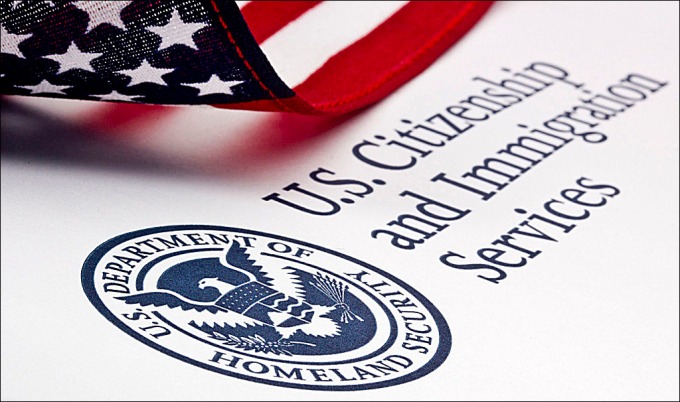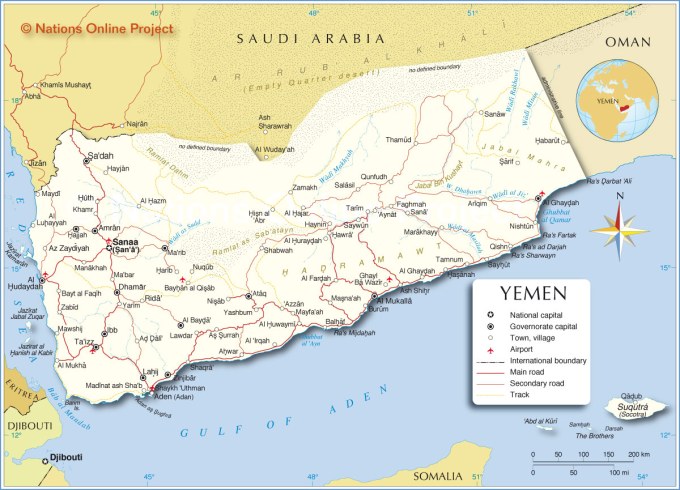Many people from Mississippi may not know where Yemen is on a map. Nevertheless, this part of the country has many immigrants from this beautiful and ancient country. Located on the southwestern tip of the Arabian Peninsula near the horn of Africa, Yemen is a country of simple, elegant beauty, along with stark contrasts and contradictions. It is a nation dominated by Islamic law and religious dogma that, in my view, inhibits its ability to modernize and integrate itself into the world community. However, this is not the fault of the average Yemeni. It is simply another example of those in power who are willing to use any means necessary to maintain their power. We had our monarchs, they have their mullahs and the patronage politicians. (sound familiar?) For an excellent review of the history of Yemen and the problems that it was facing prior to 2015, please review, Lackner, Helen, et al. Why Yemen Matters, A Society in Transition. Saqi Books, 2015.
If you study the country, you will find a country that has many problems, both economic and structural, that has led to the exodus of many people from that country. Why they have chosen to immigrate to this particular part of United States is not clear to me. However many of them are successful businesses owners, family oriented and deeply religious. Despite a strong adherence to religious dogma as a general proposition, they do not even remotely resemble the hardline religious dogmatists that dominate Mississippi politics and the talk radio airwaves, e.g. American Family Radio (AFR), SuperTalk Mississippi. Not even close. Most are significantly less dogmatic when it comes to questions of religion. With this in mind, I generally enjoy working with them and hope to continue to do so for the foreseeable future.
When someone from Yemen wants to have a family member (spouse, child, parent, sibling) immigrate to the United States, they will face special challenges that you do not encounter when dealing with immigrants from most other countries. When I first began working with Yemeni clients, I was taken aback by how long it took for those cases to be processed by USCIS. During this time, I dealt with the special challenges regarding family records by trying to think of new ways to approach a case early on to make the approval process proceed faster.
As I have learned over the last few years, family records in Yemen are not maintained in a centralized fashion, whether at a provincial or national level, as they are in most modern, industrialized countries. Even compared to less industrialized, developing nations, Yemen lags far behind in this respect. When anyone applies for a relative to immigrate United States, the US government requires that certain documents be produced to prove the relationship between the citizen (or lawful permanent resident) and the intending immigrant. This requires the family member to produce documents such as birth certificates, death certificates, marriage and divorce records, medical records, vaccination records, utility bills, land records, etc.
It goes without saying that these records must be reliable and authentic. This is where the specific problem with documents from Yemen results in extremely long wait times. The USCIS adjudicator manual has a special section for Yemeni cases. As the USCIS adjudicator’s manual states:
Chapter 21.2 (c)(6)(B) – Petitions on Behalf of Aliens from Yemen.
Since civil documents concerning marriage, birth, death, etc., are often issued in Yemen based solely on information furnished by an interested party, often the petitioner or beneficiary of the petition, they are usually not considered conclusive to establish claimed relationships. Both the petitioner and beneficiary should be interviewed. The consular officer will interview the beneficiary abroad; if an interview was possible and carried out by the district office, you should attach a record of the interview with the petitioner to the petition when you forward it to the consul. However, you may only be able to solicit an affidavit from the petitioner responding to specific questions.
Families in Yemen are very close; therefore, your questions should include all the information you can develop concerning family members, including grandparents, aunts, uncles, nephews, nieces, and cousins. You should also ask questions concerning the home village in Yemen, about the house structure and livestock owned. Be on the look out for subtle differences in interviewees’ testimony. Questions might include:
- The type of house;
- Number of rooms and location of each;
- Names and relationship of everyone living in the house and where they sleep; and
- The number of cows, donkeys, sheep, goats, and other livestock owned, if any.
The usual procedure is to request the petitioner’s “A” file, and upon receipt, make a careful check of the file in reference to the claimed relationship to the beneficiary. Question the petitioner regarding any discrepancies material to the petition, and deny the petition if those discrepancies cannot be reconciled to your satisfaction.
It is clear from this directive that USCIS does not consider family records from Yemen to be reliable or authentic. As a result, the facts contained within the documents are not reliable enough to form the legal basis for a relative to immigrate to the US. Though I have no way to verify this, I believe that this provision was added because of the large number of forgeries that originated from Yemen in the past (this is based on a conversation I had with a UCSIS officer off the record). The lack of a central authority and the lack of contemporaneous recording of vital events make the credibility of these documents, and the facts contained in those documents, suspect.
As a result of this special provision, when beginning a case for client from Yemen special care must be taken to provide as much information as possible about the family member and the relationship to try to make the case proceed as fast as possible. However, my concern is that despite the production of any amount of compelling, probative evidence, (even when the marriage takes place in the US) these cases will continue take considerably longer to process than most other cases. It is important for family members to know this at the beginning.
Unfortunately, there is nothing that an immigration attorney can do to make the case go faster, especially if it’s a case from Yemen. Calling your immigration attorney every two weeks for case status update will not make your case go faster, nor is your attorney neglecting your case because he/she doesn’t have any news to report. Clients must understand that USCIS has special provisions for Yemeni cases. This is not fair, but is a consequence of the way USCIS and the Department of State perceive the records of vital events from Yemen. Because of the inherent lack of reliability of family records, cases from Yemen will take longer and you must be patient while your case proceeds through the process.
If you’re trying to have a family member immigrate from Yemen, the only advice that I have boils down to three things:
- Work hard on the front end (with an immigration attorney)
- Patience.
- If you are feeling impatient, see #2 above.
The link to the USCIS adjudicator’s manual:
https://www.uscis.gov/sites/default/files/ocomm/ilink/0-0-0-3513.html#0-0-0-387




